Important notice - We are aware of a scam where people are impersonating CMD Recruitment to offer jobs via WhatsApp & Telegram. This is a scam, CMD Recruitment will never contact new candidates via these methods. Any legitmate offer from CMD Recruitment would be made via a telephone call.
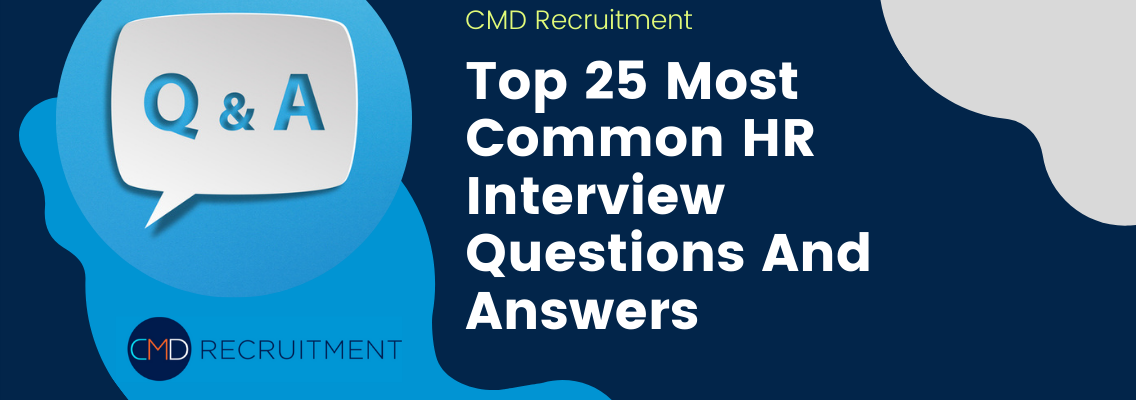
March 16, 2022
Interviews can be stressful for everyone. But being well prepared is one of the easiest ways to ward off stress. With these 25 questions, you’ll be prepared for any scenario. You don’t have to know the exact content of the interview, but you will have some great answers prepared that can easily be adapted on the spot.
By preparing for the most common types of questions, you’ll have a strong answer to a high percentage of the questions, so you can make sure you don’t miss out on any key information. It also helps to be able to practice some of your answers, as this will allow you to deliver them with confidence.
To help you prepare, we’ve gathered the 25 most common interview questions that the HR department or interview panel is likely to ask and offered some guidance on how to answer them, including sample answers. Read on to learn the most common interview questions, including answers or guidance on how to answer the more difficult questions.
“I have a degree in Computer Science and a Master’s Digital Marketing. I have over 5 years of experience in digital marketing, with a specialization in SEO, SEM and social media marketing. I am passionate about the changing face of digital marketing and how big data and AI will transform the sector.”
“I applied for this role because I am looking for an opportunity to use my skills and experience in the field of digital marketing. A saw a lot of my core skills in the job description, but also saw you are looking for some skills that I am interested in developing. This would be an ideal growth opportunity for me.”3 -Why do you want to work for this company?
“I want to work for this company because it is a great place where I can develop my skills in writing and editing as well as grow my career.”
“I would like to bring my creativity and enthusiasm to this company. I am a hard worker with a positive attitude, and I am willing to do whatever it takes to make this company successful.”
“I am leaving my current role because I want to start a new chapter in my life and explore new opportunities. I have been working for this company for over 10 years and it has been an amazing experience. However, I feel like it is time for me to move on and take on a new challenge.”
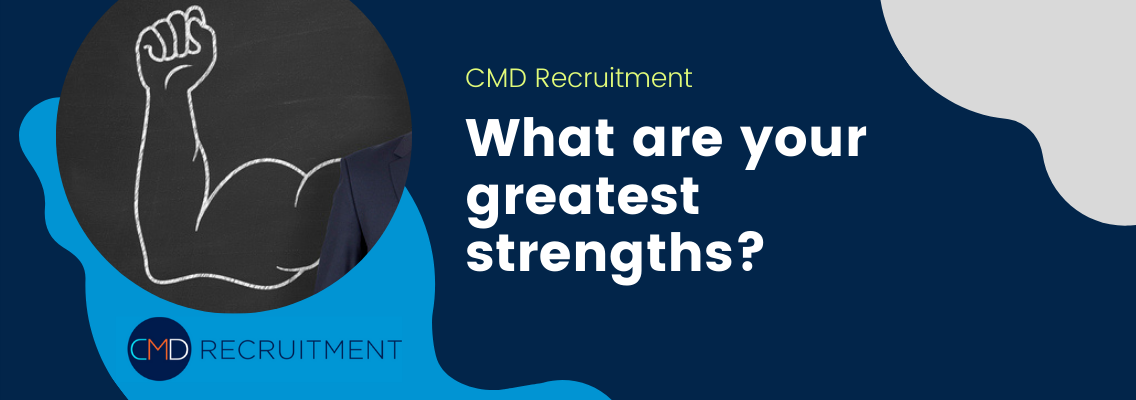
“My greatest strengths are my creativity and my ability to empathize. In digital marketing, it’s essential to be able to understand your audience and find creative ways to reach out to them. I also have a strong understanding of psychology, which allows me to understand what people want and need in order to engage them in the best way possible.”
“I consider myself to be a perfectionist, but I’m learning to accept that done is better than perfect. By working as part of a wider team, I’m able to collaborate effectively on projects and ensure I hand over my share of the work on time.”
“I have been in the industry for more than 10 years, so there have been quite a few highlights. I have won awards, published books, and even spoken at conferences. But there is one achievement that stands out to me. I’m really proud that I’ve been able to build a career out of my passion.”
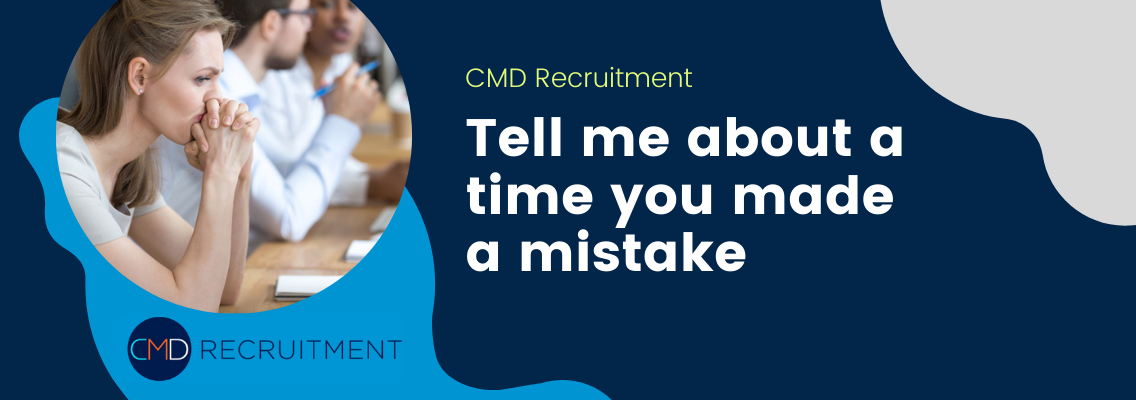
“On my first day in a new role, I was eager to make a good first impression so I rushed through a lot of my work. At the end of the day, my manager took me to one side and suggested that I slow down because the quality of my work wasn’t good enough. I felt foolish at the time, but it taught me the value of making sure I always deliver work of a high standard.”
“I once worked on a team helping to deliver a monthly newsletter for a client. One of my colleagues suggested an idea for a piece of content that I thought could be misinterpreted by the reader. He pushed ahead with writing it, so I had to step in and ask a senior manager to look at it. But before this happened, I took my colleague to one side and explained my position. In the end, he agreed that it could be considered insensitive and we worked together to create something new.”
“I once had to manage a team of 15 people. I was in charge of the project and I had to make sure that everyone was on the same page and knew what they were supposed to do. I made sure that everyone felt comfortable and that they were always getting feedback from me. This way, they could feel like their input mattered and they weren’t just following orders.”
“I thrive in collaborative situations, so I like to be around others so I always have people to bounce ideas off. However, there are some aspects of my job that require careful concentration, so I’m also able to put my head down and find focus, even in a busy office environment.”
“I think my boss would comment on my creativity, passion and openness. I think I bring a lot of energy into the office, so I’m often the person called on to welcome newcomers to the team and make sure they have someone in the office they can turn to for support.”
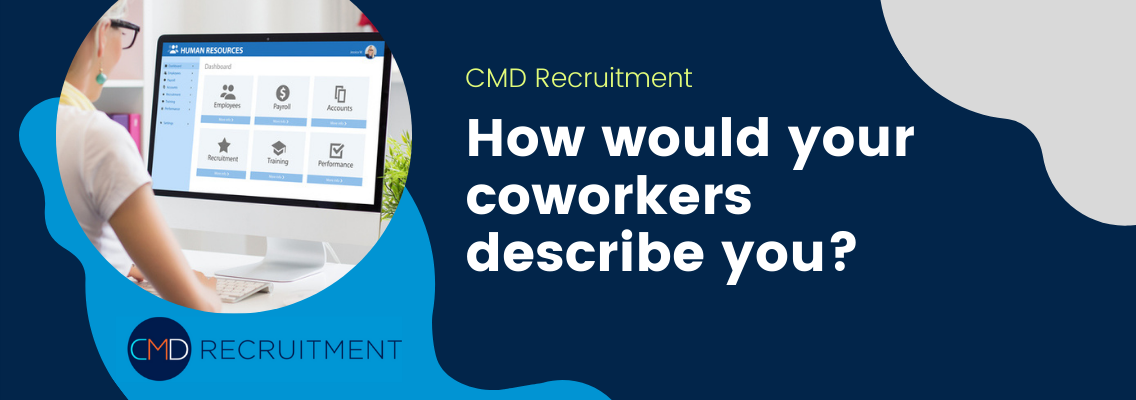
“I think my coworkers see me as a person they can rely on to get the job done. I don’t ask for additional time on projects or deliver things late. And if I know that I’m going to hit a hurdle, I always make sure I communicate this with my team.”
“I’m a goal-driven person. I like to regularly set and review goals to make sure I’m always working towards the next thing. This level of self-awareness about my professional and personal development has helped me to achieve the things that I want and keeps me focused.”
“I love the team that I’m working with. We have a great mix of personalities and skillsets that seems to allow us to create incredible things together. The team is so much more than the sum of its parts. I will be really sad to say goodbye to that team, but I feel like we have an excellent bond and will stay in touch.”
“The first thing I do when I’m feeling stressed is to take a step back and breathe for a moment. I think break down my to-do list and sort it by priority. If there are things I can delegate without causing anyone else too much stress, I will do this. Then I tackle things one by one. I recognise that stress is sometimes just part of the job and try not to take this stress home with me.”
“I like to feel involved in the bigger picture, so I will often ask to sit in on meetings just to be aware of what is going on in the wider company. I also respond well to on-the-spot feedback, but I’m also happy for this to be more formalised in a monthly or quarterly review.”
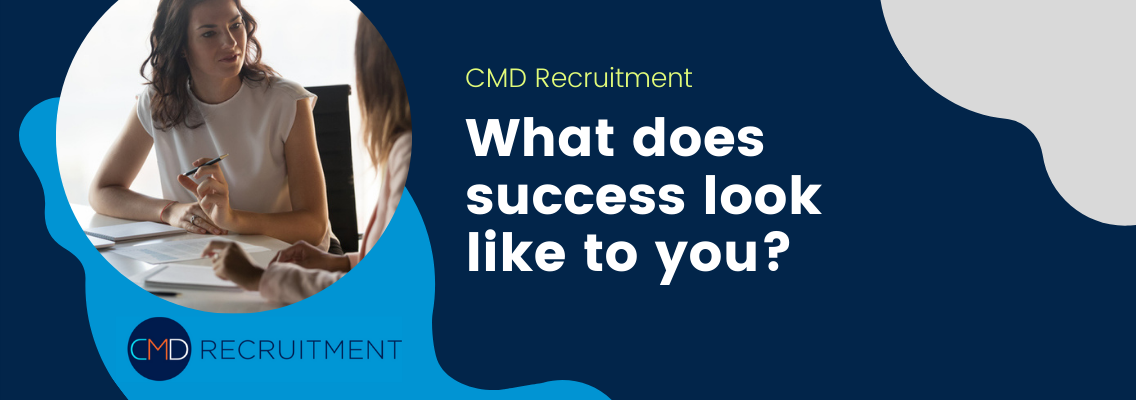
“Success is all about achieving a goal, assessing the situation and then setting another goal. This is how I have progressed in my career and in personal achievements. For example, when I achieved the goal of running a half marathon, I felt proud of this achievement, but I immediately decided to sign up for a full marathon the following year.”
“I don’t know the exact role I would like to be in, but I would like to take on more of a leadership role. I’m also committed to continual development, so I would like to be adding to my skills and ensuring I can bring even more to the table through further education and learning opportunities.”
“I’m not sure I have a dream job, but I think it would be something that allows me to be creative while also helping people. My volunteer work is really important to me, so I would like to be able to offer my skills and services to a charity or similar organisation. This role would be ideal in helping me to create my dream role as I noticed that you allow employees to use 5 hours per week for volunteer work.”
Even if you aren’t interviewing with other companies, it can help to improve your negotiating position if you say that you are. It’s a small white lie, and you don’t have to mention which companies you are interviewing with by name. If they press you for names, simply say that you would prefer not to mention who they are.
When answering this question, remember to still remain professional and try to link things back to your sector or role. For example, if you’re a copywriter, you might mention that you are part of a book club or that you like to write fiction. If you have mentioned that you are a goal-driven person, talk about any sporting achievements you might have.
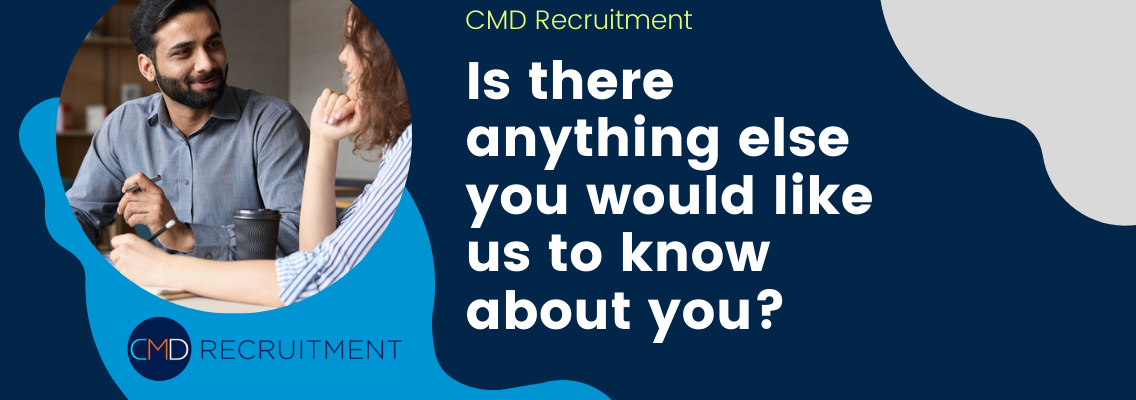
This is your chance to mention anything that you haven’t had a chance to bring up in the interview. There may also be things that you forgot to mention on your CV that seem more relevant now that you’ve had a chance to learn more about the role. You can also use this as an opportunity to summarise your experience. Rather than simply say “no”, try to round up what you have told them into a neat package so that they have a quick summary.
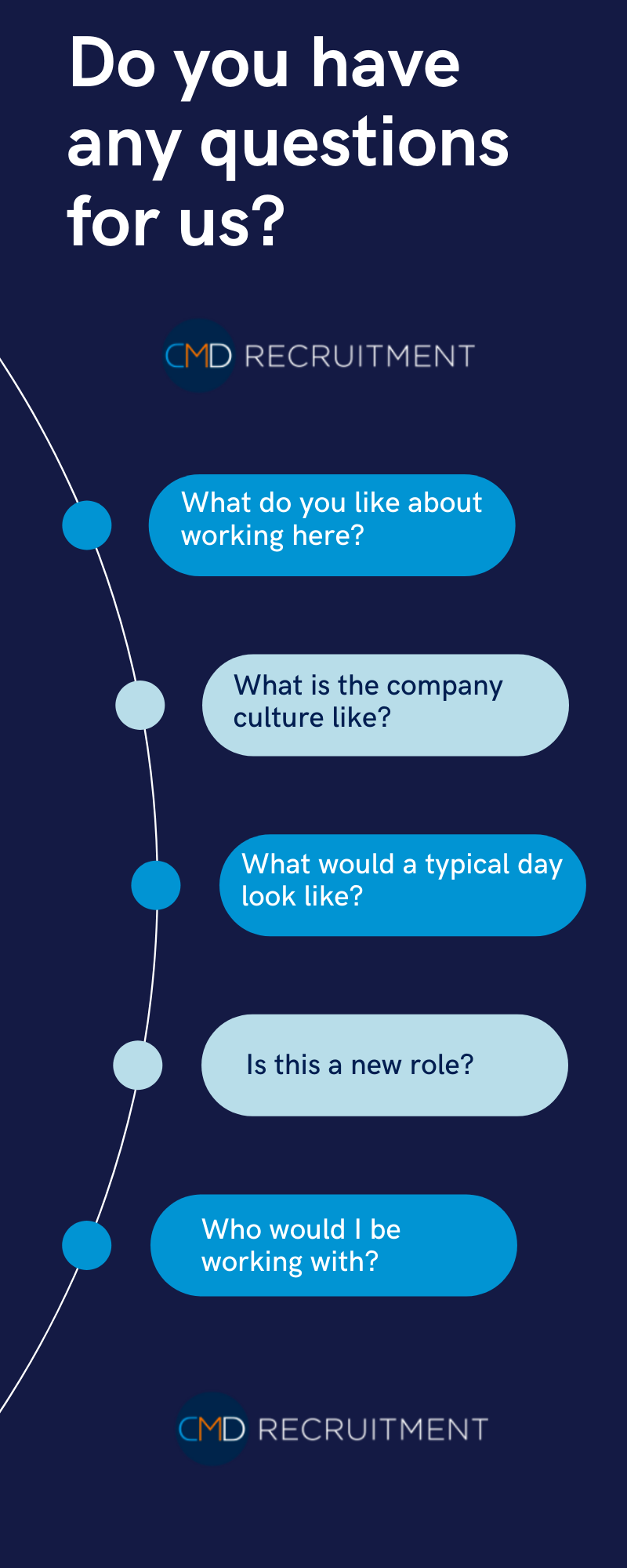
You should always ask questions at the end of an interview as it should be treated as a conversation. Just as they are trying to determine if you are right for the role, you are also trying to determine if this role is right for you. The following are some questions you could use to turn the tables on the employer:
By preparing for these common interview questions, you will be well-prepared for anything they can throw at you. While some questions are likely to be related to the job description, by learning the STAR method, you’ll be ready for anything.
The STAR method is perfect for situational questions. You start with the situation, then outline the task, then tell them the action you took, and finally the results. This works for positive and negative situations, just be sure to mention what you learned from the situation if there was a negative outcome.
Back to Blog